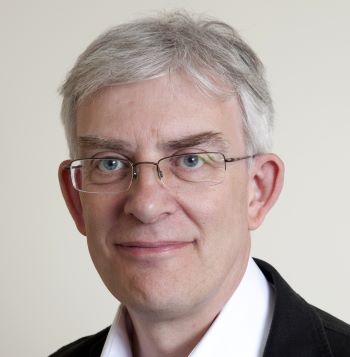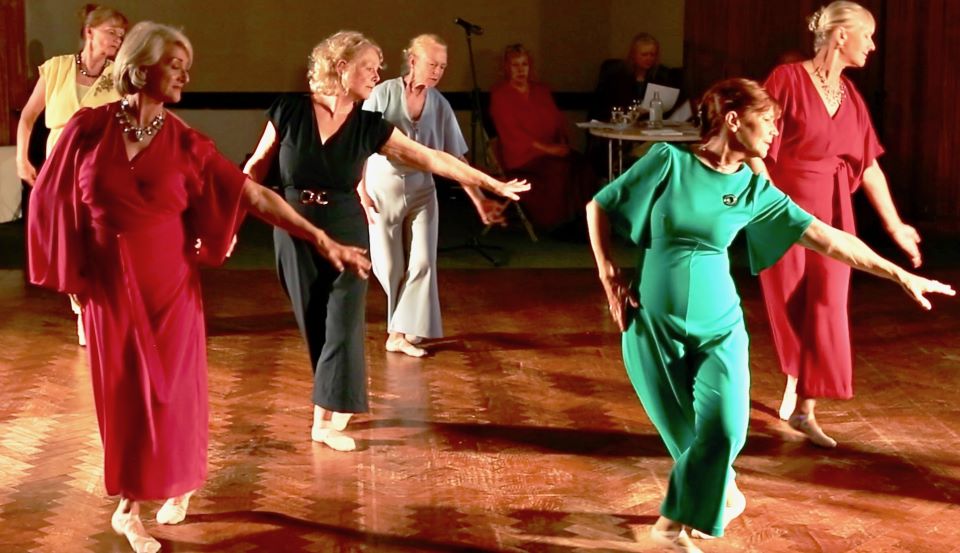There is an inevitability that we will be able to do less as we get older, but everyone can influence when this happens in their lives. We must reject age stereotypes and promote ‘healthy ageing’.

Comment spotlight
Are you an RSA Fellow? Submit your original article to Circle and it could be featured as the next Comment spotlight.
This Comment is part of our Spotlight series highlighting the most engaging articles submitted to the Comment space on Circle from Fellows. If you have an article you would like to share with the Fellowship, click the link to upload it now.
The decades-long increase in life expectancy we have experienced in the UK and other countries – which until recently increased by an average of five hours per day – can be considered a major success in the field of ageing. However, while people are living longer (improved lifespan), this has not uniformly resulted in living better for longer (improved healthspan). Socio-economic circumstances are also causing a variation of 20 years in healthspan between those from deprived and those from more privileged backgrounds.
Most of our resources and effort have understandably been focused on reducing disease and addressing age-related medical issues. There has been amazing innovation in terms of joint replacements and similar interventions that tackle issues associated with ageing – which are to be celebrated. We have telecare and telehealth technologies to address the risks associated with the increasing numbers experiencing falls and other adverse events. However, these mitigate the risk (or consequences), as opposed to minimising the creation of risk.
But research shows we can impact the rate of functional decline that is associated with increased risks and increased healthcare costs. We can address the wide variation in healthspan which is driven by the choices we can and do make. Why do we not hear that functional ageing can start as early as 42 and yet as late as 100+ depending on the choices we make? We often hear the phrase “what do you expect at your/my age?” oblivious to the evidence demonstrating a negative stereotype of ageing will result in you walking slower along with measurable cognitive decline just two years later.
We can live better for longer – but for society’s sake we need to encourage all of us to take personal ownership.
Healthy ageing
There is an inevitability in losing functional abilities as we get chronologically older. What is not true is that most of these things happen at a specific chronological age. We have known for a long time that there are exceptions to how groups of people age, one example being the ‘Blue Zones’. Dan Buettner, the Blue Zones founder, identified five original blue zones – the places in the world with the healthiest, longest-living populations, including Okinawa, Japan; Sardinia, Italy; Nicoya, Costa Rica; Ikaria, Greece; and Loma Linda, California.
While trying to create more blue zones is not a bad thing, all populations including the UK can make a significant difference right now by promoting the practical concept of ‘healthy ageing’. The World Health Organization describes healthy ageing as ‘the process of developing and maintaining the functional ability that enables wellbeing in older age. Functional ability is about having the capabilities that enable all people to be and do what they have reason to value.’
As a minimum, this includes what we describe as activities of daily living (daily tasks) – the things we all do regularly – in several cases, multiple times daily. We have also learned that having more better years doesn’t typically lead to a significant increase in life expectancy – providing improved healthspan rather than lifespan. We call this concept the compression of functional decline.The Australian government has been actively promoting this for a couple of years now.
Why are we not hearing the counter argument that it can and must be different if we are not to crush our NHS and Social Care organisations? According to the International Longevity Centre (ILC), If the UK’s target of five extra healthy years by 2035 had been met in 2019, it would be the world’s best performing country on the health span metric. However, the ILC adds: ‘But unless the UK ups its current spend on prevention from 4.8% of the overall health budget to 6%, this is an ambition that feels increasingly unlikely as the target date approaches.”
This is not simply a spending issue, but is exacerbated by the lack of any concerted effort to help people understand their role in how they age. There are a myriad of efforts from a wide range of organisations seeking to impact this – perhaps now is the time to coordinate and leverage this with the message: “We can live better for longer – but for society’s sake we need to encourage all of us to take personal ownership”.
I now run around 1,000 miles a year with the right warm up and cool down routine – and no knee pain – even completing my first marathon last year aged 65.
Fitter and healthier
How have I personally responded to this? As part of my research into what people do that makes them age well, I discovered very good evidence showing runners aged extremely well (cyclists too). My family had tried to convince me to run again after giving it up in my teens as I “had bad knees” – but I wasn’t willing to take the drugs I was prescribed. But as the evidence of benefit was so overwhelming, in my late 50s I decided to take part in my local Parkrun, spending the rest of Saturday morning with ice packs on my knees – presumably (according to many around me) just one of those things that come with age.
So, my family packed me off to a good physio with a ‘knee speciality’. Just two weeks later, with muscles rebalanced, I was completing the Parkrun with no ice packs afterwards. I now run around 1,000 miles a year with the right warm up and cool down routine – and no knee pain – even completing my first marathon last year aged X. I’ve never been fitter and enjoy doing all the things I want to do.
There is a difference (if also an overlap) between treating health problems as we get older, and healthy ageing – which avoids many of those problems. Ever heard of the recommended 150 minutes of moderate to vigorous exercise each week? Based on data from high-quality studies involving up to 2.4 million people over 40 years, moderate and high levels of physical activity in the over-65s confers a 50% reduction in the risk of functional limitations or disability. That’s the personal benefit – the societal benefit? Perhaps nearly £4bn of reduced social care costs, and likely at least the same of healthcare costs.
Can we do this? Absolutely. Do most people know what and how? Absolutely not. Clearly public health bodies in local and central government have a responsibility here, but we should all reject the stereotypes, and encourage our media to help promote a positive image of healthy ageing.
Peter Gore is a retired professor of practice in healthy ageing and the CEO of an SME.
Read other Comment articles from our Fellows
-
Ten ways to improve planning in the UK
Comment
Steve Newman
Steve Newman offers provocative propositions to modernise the planning system, create affordable and sustainable homes, and offer financial benefits to the government and local communities.
-
Black History Month: Q&A with I. Stephanie Boyce
Comment
Deborah Ajia
The first Black president of the Law Society discusses how she overcame the odds to rise to the top of her profession, and is now helping to drive social change as an RSA Fellow.
-
Keep dancing!
Comment
Barbara Berkeley-Hill
Age should be no barrier when it comes to dance. Barbara Berkeley-Hill discusses how dancing can help older generations feel younger, happier and more connected.




Join the discussion
Comments
Please login to post a comment or reply
Don't have an account? Click here to register.
Good article. More should be said about the role of diet in promoting a longer healthspan and lifespan. The Blue Zones, mentioned in this article, are such primarily because of the greater amount of unprocessed, plant-based foods as a proportion of the diet in those areas. Eating a primarily whole-food, plant-based diet can greatly reduce the risk of the major diseases associated with reduced healthspan and lifespan, such as heart disease, stroke and cancer. Switching to such a diet can help to slow the progress, or even reverse, some of these diseases; in many cases eating certain plants regularly can be more effective than some pharmaceuticals. The recent book by Dr Michael Greger, "How Not To Age", covers this in great detail. Imagine what a benefit it would be to our society if we could reduce the cost of debilitating disease, and their pharmaceutical treatments and surgical interventions, by eating more plants. We can.
Dear Evan, Thanks for your comments, diet is of course an important element of healthy ageing. Probably the most important dietary point about healthy ageing is that we should consume between 1.2 and 2.0 g/kg/day of protein to help maintain our muscle mass. (This 'comment' article obviously isn't meant to include everything we know and/or should do to improve how we age - which would also include sleep etc. The intent is to tackle some key attitudes.) However, the kind of diet you describe seems very like the 'Mediterranean diet' that has very good evidence over many years - one my family have tried to follow for many years. Great to hear your good ideas. Thanks.
I endorse Peter Gore's last paragraph in particular, which is an on-point clarion call to action. My own story resonates deeply: stopped smoking after 26 years - started martial arts training in my mid 40s and became a 2nd Dan Instructor. Today at 64, I'm still stretching, practising my martial arts, resistance and CV training. As my GP knows, I only show up for major illness or trauma. Has the lifestyle revealed any latent defects? Yes indeed: both knees with underlying cartilage tears (dating to back to my teens as a goalkeeper), and one hernia (apparently it runs in the family). Surgery corrected those over 13 years ago and I kept kicking shields. I don't recover as fast as I used to. Peter's point about complete warming up and cooling down is so important to keep the cramp and tissue-tear monsters at bay. What's the plan? To have a long healthspan culminating in a short death. But still keeping my promise to myself that I'll still be practicing my martial arts patterns (Katas) to my last day. Yet I do not see anywhere in today's health service provision the concepts of stretching to maintain our bodies' balance and full range of motion, the importance of resistance and CV training to offset aging - nor the value of active lifestyles in releasing endorphins and so upping our mood states. Keeping us out of the GP's surgery, or worse the hospital in-patients units, whilst saving the NHS costs has to be doing something right!
Thanks for your comments Mahomed, great to hear your story, sounds like you are ageing well. Many things do get a bit tougher as we get older, but it sounds like you're doing well. Having the capabilities that "enable us to be and do what we have reason to value" as the WHO says, is what healthy ageing is all about (and yes of course we get some challenges along the way).
I had a bilateral pulmonary embolism in my 50's (blood clots in both lungs), which prompted me to loose weight and get fit. Now in my 60's I swim and play ice hockey. Ice Hockey is great because it challenges balance, dexterity, fitness at the same time as making you solve moving 3d puzzles. Currently we have 2 start ups and a turn around. The other thing I find that helps is learning new languages.
Hi Ronald, it sounds like you've got on track. I employ a World champion hockey player (not ice though), she's fit, active, fearsome on the pitch - and still forensic in her review of contract detail! Great to hear you're ageing well - if only we could get the healthy ageing message out there to the majority!
The WHO recommendation of 150-300 minutes a week of moderate aerobic exercise is out by a huge margin. I'm 72, and I cycle at least an hour a day, often 2-3 hours. I take at least 900 minutes of exercise a week. I started running in 1977 and only recently changed to cycling because of atrial fibrillation. And I use one of these https://www.elliptigo.com
Hi Stephen, thanks for your comment. Well done you. We would be doing unimaginably better if only the majority did 150 minutes per week - it's not meant to be a maximum! That said the evidence is that over ~600 mins/week doesn't appear to have significant additional benefit (though I also do more because I like long runs). Glad you're enjoying lots of physical activity.
65 is young middle age. I don't want to run marathons, and never have. But at 87 rising 88 I want to keep fit enough to use my brain, which still seems to be working — and I know a helluva lot more than I did twenty years ago. However, I find I don't want to tell anyone in a professional context how old I am for fear that anything I say or write will be dismissed, or at least treated with caution. The fear of ageism is very real. How to combat it?
Hi Margaret, no reason why you should run marathons - I've just found I can, and I enjoy hill running and flatter distance running. Each to their own. It's also an easy way to get those 150 intensity minutes which are important - as those that do their 150 have a much lower risk of most of the things you don't want to get! There's also really good evidence that your brain is physiologically younger for every extra flight of stairs you climb daily. I share your concern about being 'labelled', I've 'fallen' twice in 2 years - once tripping over a non-obvious stone whilst running too fast for the conditions, and the other slipping on some very difficult mud coming down a steep hill just yesterday! Both involved a trip to minor injuries where they read in my notes (courtesy of an enlightened GP), that I'm fit, active and healthy. No one suggested that they put me on the falls-risk register :-)